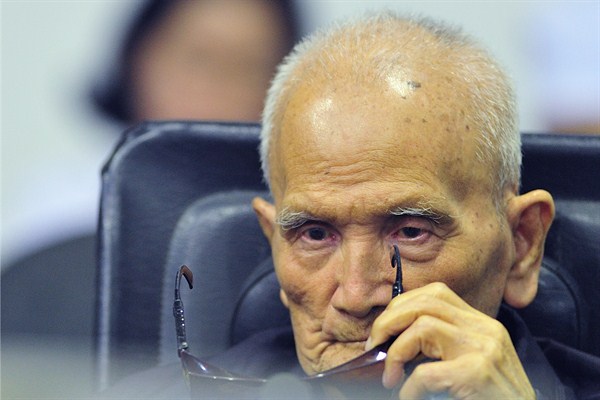He died in a hospital in Phnom Penh, 93 years-old and still portraying himself as a Cambodian hero. Nuon Chea was the senior-most surviving member of the
genocidal Khmer Rouge, having served as Brother No. 2, as he was known, under its leader Pol Pot. He was widely seen as one of the major planners of the regime’s rapid, brutal overhaul of Cambodian society from 1975 to 1979, which included emptying Phnom Penh of citizens, murdering a sizable portion of the population, and torturing and killing some 14,000 people at an infamous prison called Tuol Sleng.
Nuon Chea was also one of the only leaders of the Khmer Rouge who ever faced trial for the regime’s horrific crimes. After the Cambodian civil war ended in 1991, he was later indicted along with four compatriots at a tribunal, officially called the Extraordinary Chambers in the Courts of Cambodia. Despite securing genocide convictions against Nuon Chea and Khieu Samphan, the Khmer Rouge’s head of state, the tribunal, which cost around $300 million and has lasted for more a decade, has been mostly a bust.
Set up in the mid-2000s with backing from the United Nations and a mix of foreign and Cambodian judges, the tribunal had a mandate to try former senior Khmer Rouge officials for serious abuses and violations of international law. The trials attracted top legal talent from Cambodia and abroad, including devoted foreign and Cambodian experts who conducted a very thorough investigation to set the stage for indictments. But from the beginning, Cambodian strongman Hun Sen—who had been a low-level Khmer Rouge cadre before fleeing to Vietnam and then returning with the Vietnamese military when it removed the Khmer Rouge from power—worked to stymie the tribunal.

